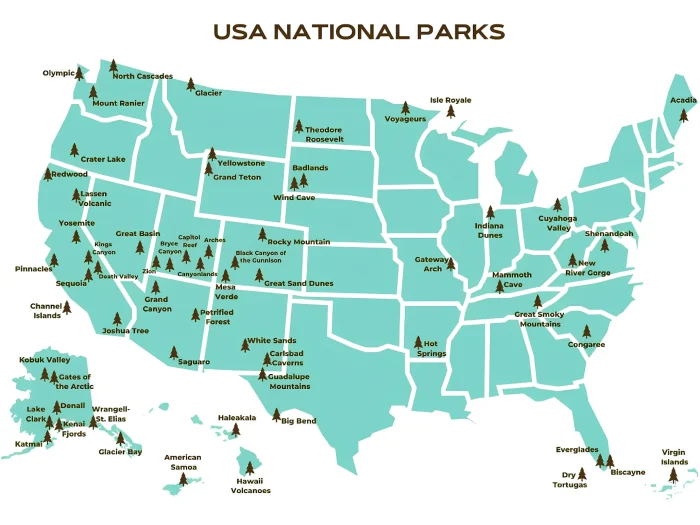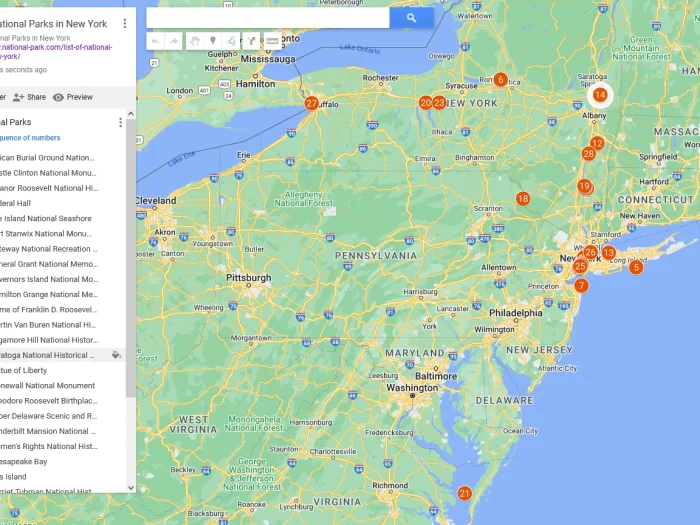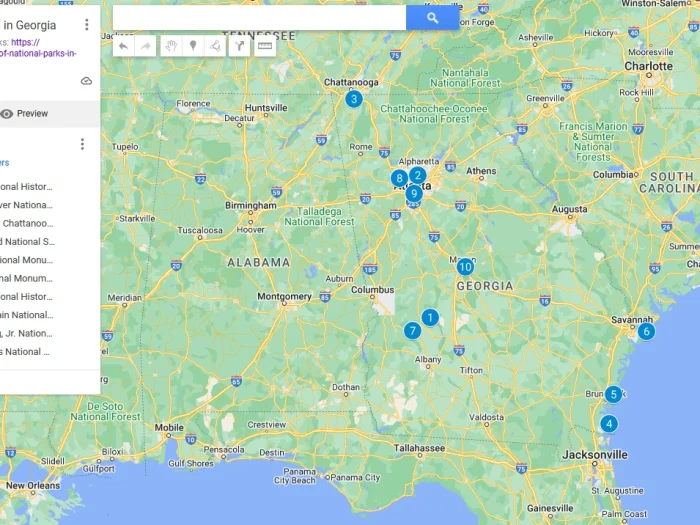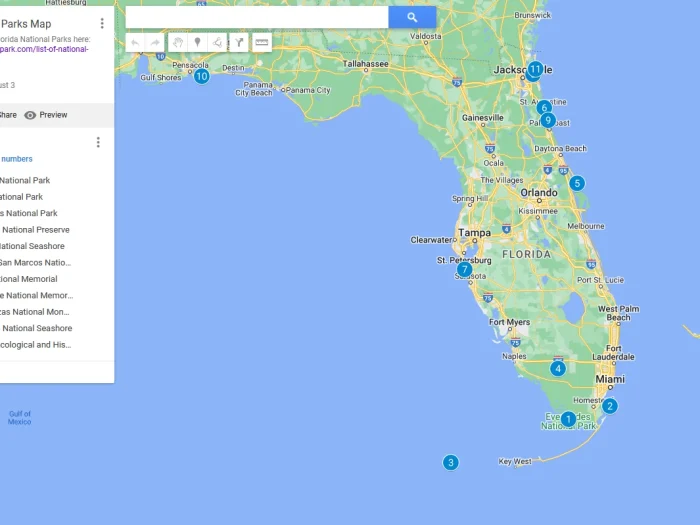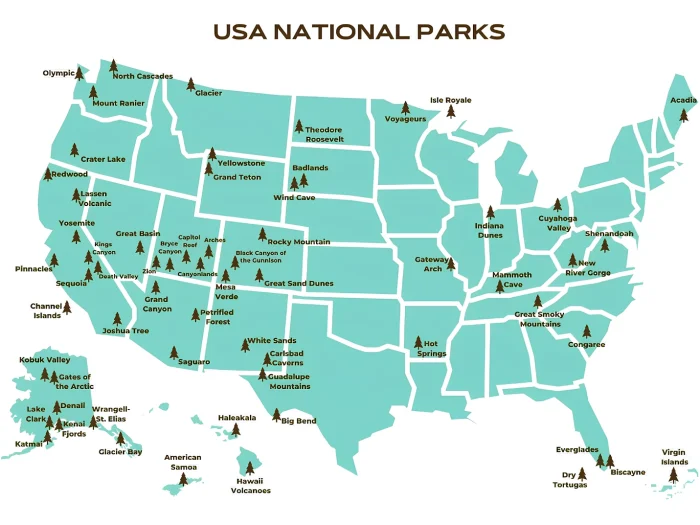How National Parks Are Saving Our Ecology: A Short Guide for Students
National parks are often celebrated as jewels of natural beauty, offering breathtaking landscapes and a refuge from the hustle and bustle of city life. However, their value extends far beyond providing recreational spaces for us to enjoy. These protected areas play a crucial role in the preservation of our planet’s ecology, safeguarding diverse ecosystems and species that might otherwise face extinction. By conserving vast tracts of wilderness, national parks maintain ecological balance and contribute to the health of our global environment, making them indispensable in the fight against ecological degradation.
For students diving into environmental studies or those simply passionate about conservation, understanding the ecological significance of national parks can be both enlightening and inspiring. It’s not uncommon for such revelations to spark a deeper interest in ecological issues, leading some to explore these themes further in academic projects. The phrase “write my term paper” becomes more than a call for academic assistance; it’s a reflection of a student’s desire to delve into the crucial role national parks play in sustaining our ecology. This guide aims to shed light on how these protected areas are saving our planet’s ecological balance, offering students a foundation of knowledge to build upon in their studies and future conservation efforts.
https://unsplash.com/photos/mountain-peak-2YC3eJ0ysHY
The Origin and Purpose of National Parks
The concept of national parks originated in the late 19th century, with the establishment of Yellowstone National Park in 1872, marking the birth of the world’s first national park. This groundbreaking idea was born out of a desire to preserve the natural beauty and wildlife of the area for future generations to enjoy and learn from. Since then, the national park movement has spread globally, with each park created with the dual purpose of protecting natural heritage and providing a space for public enjoyment and education. National parks aim to conserve landscapes and wildlife in their natural state, safeguard biodiversity and maintain ecological processes that are critical to life on Earth.
Ecological Benefits of National Parks
National parks are vital for the conservation of biodiversity. They provide sanctuary to countless species, including many that are endangered or endemic to specific regions. By protecting these areas from development and exploitation, national parks preserve essential habitats that are crucial for species survival. Furthermore, national parks play a significant role in climate change mitigation. Forests, wetlands, and grasslands within these parks sequester carbon dioxide, helping to reduce greenhouse gas concentrations in the atmosphere. Additionally, by maintaining natural landscapes, national parks contribute to water regulation, soil conservation, and the purification of air, demonstrating their wide-reaching ecological benefits.
National Parks as Educational Tools
National parks serve as unparalleled educational resources, offering students and visitors firsthand experience with natural processes and wildlife conservation. Educational programs within these parks range from guided tours and ranger talks to more formal research opportunities and internships for university students. These programs are designed to foster a connection with nature, enhance understanding of ecological principles, and inspire conservation action. For students, national parks provide a unique context for learning about environmental science, offering real-world examples of ecosystems, conservation challenges, and management practices.
Challenges Facing National Parks
Despite their protected status, national parks face numerous challenges that threaten their ecological integrity. Climate change poses a significant threat, altering habitats and endangering species adapted to specific climate conditions. Invasive species introduced by human activity can outcompete native flora and fauna, disrupting ecosystems. Additionally, human encroachment and illegal activities, such as poaching and deforestation, directly threaten the biodiversity within park boundaries. Addressing these challenges requires adaptive management strategies, ongoing research, and strong legislative support to ensure that national parks continue to fulfill their role in conserving our planet’s ecology.
By exploring the origins, purposes, benefits, and challenges of national parks, students can gain a deeper appreciation for these critical areas in our global efforts to preserve the natural world. National parks not only safeguard our planet’s biodiversity and ecological processes but also serve as vital educational resources, teaching us about the importance of conservation and the complexities of managing natural resources sustainably.
The Role of Students and Young Conservationists
The future of national parks and, by extension, the broader ecological health of our planet rests in the hands of the next generation. Students and young conservationists play a pivotal role in this ongoing effort. Through education, volunteerism, and advocacy, they can contribute significantly to the conservation and preservation of these vital natural resources.
Engaging with national parks provides invaluable practical experience, deepens ecological understanding, and fosters a strong conservation ethic. By participating in research projects, conservation initiatives, and educational programs within these parks, students not only contribute to the parks’ missions but also prepare themselves for future careers in environmental science and conservation. Their fresh perspectives, energy, and commitment are crucial for addressing contemporary environmental challenges and ensuring the continued success of national park conservation efforts.
Conclusion
National parks are more than scenic landscapes for leisure and recreation; they are fundamental to preserving our planet’s ecological integrity. Through protecting biodiversity, mitigating climate change, and offering educational opportunities, national parks play a crucial role in conservation efforts. However, they face significant challenges that require innovative solutions and active participation from the global community, particularly from the younger generation.
Students and aspiring conservationists are at the forefront of this movement, equipped with the knowledge, passion, and dedication to make a difference. Engaging with these natural wonders not only enriches their academic and personal lives but also contributes to the vital work of saving our ecology. For those looking to delve deeper into this subject, whether for academic purposes or personal interest, turning to the best paper writing service can be a valuable resource in crafting insightful and impactful essays, term papers, and research projects on conservation and national parks.
Ultimately, the collective effort to understand, appreciate, and protect our national parks is a testament to our commitment to preserving the natural world for future generations.



